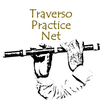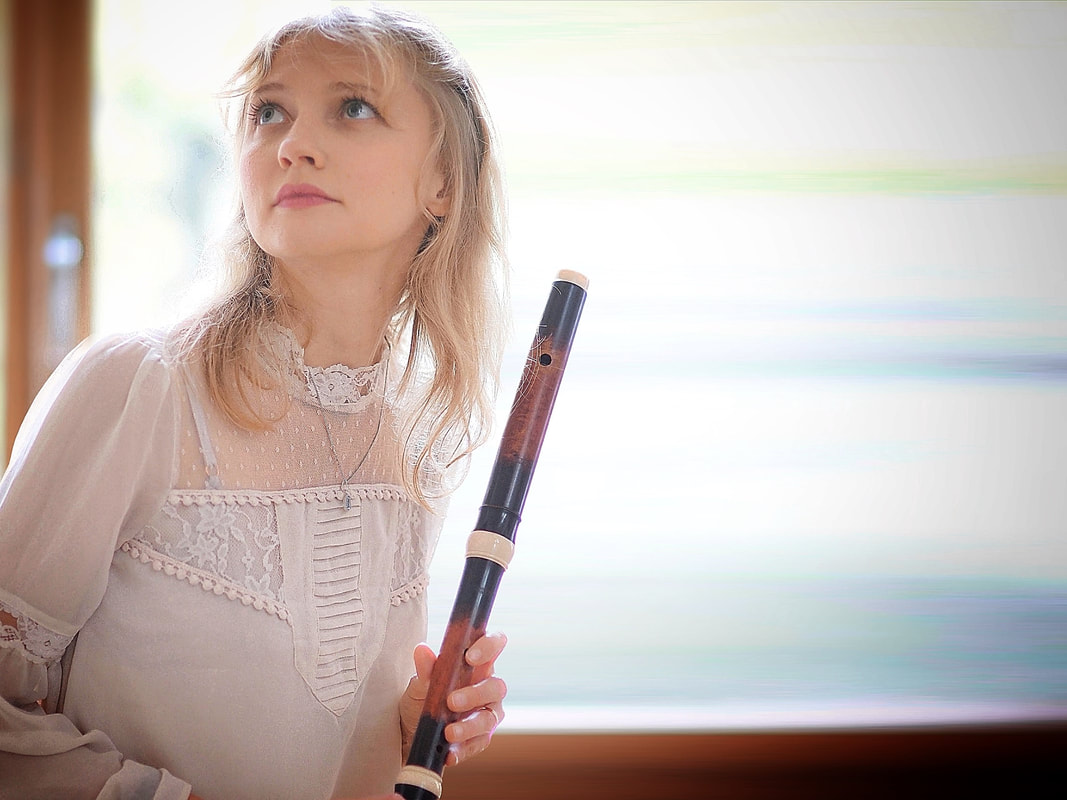|
"I am a flutist, teacher, curator, and co-host of the @insight-reading enlightenment podcast. I love exploring new horizons for my musicality and the musicality of the world. I think curiosity moves us forward in our profession, it helps us not lose motivation and zest for life."
Darina is a Basel-based specialist in historical flutes. She is a graduate of the Schola Cantorum and the Moscow State Conservatory, prize winner of the Wassenaer Competition with PHAEDRUS, recipient of the REMA Prize and the EMA Scholarship, and has been selected for the International Young Artist Performance in Antwerp and the Orchestra of the Age of Enlightenment. Darina is a passionate orchestral and ensemble player, with numerous appearances with orchestras in Europe on period instruments, performing Charpentier, Rameau, Lully, Purcell, as well as Bach’s Passions and Oratorios, Mozart concertos as soloist and in orchestra, Beethoven's symphonies, and CD recordings on Aparte label with Orkester Nord. @insight-reading enlightenment Podcast Darina on Facebook |
|
The first thing you do when you pick up your traverso to start the practice day, and why?
|
The very first sensation that I experience is the wooden body of the flute, when I pick it out of the case. It is like a warm mutual greeting between the instrument and myself, the first touch after a break is very important.
|
|
Any recurring piece to play every day, and why?
|
Although I don't have a specific piece, it's usually some phrases from one of the movements of Bach's Partita or the beginning of the C major Sonata BWV 1033 when it comes to the transverse flute. For the Renaissance flute, it's usually some cadenza formulas.
|
|
Do you have a daily routine?
|
Every day I play at least two flutes, depending on my current projects and teaching activities. Still, I start with long tones that gently wake up my facial muscles. Then I usually play some scales, sometimes inventing my own exercises. For example: indistinct leaps and octaves, different kinds of harmonics and multiphonics.
|
|
What kind of goals do you set for your practice?
|
It was always important to find a way where I felt comfortable and connected with my instrument. That I could talk to it and, in the process of practicing, control the way I could translate my intentions into sounds.
|
|
Do you do any systematic warm-up?
|
As I mentioned earlier, I like to invent my own exercises that approach what I learned in my voice lessons. You can always feel which way of warming up is better for the moment. It is interesting to observe that depending on the weather, humidity, mood and state of health, the connection with one's body and with an instrument can be perceived in different ways.
|
|
Do you have a specific structure for warm-up and practice sessions?
|
There is no strict structure. After a warm-up session, I may sight-read something or play an old etude that I like. After that, I usually practice certain pieces that I need to prepare for my upcoming activities.
|
|
Any distinctive characteristics of baroque flute daily practice vs. modern flute or other instruments?
|
These characteristics were always related to the difference of embouchure that one has to form with the lips in order to play the different flutes. When I was just beginning my studies at the Schola Cantorum, this difference seemed dramatic. Transverse flutes such as the Renaissance and Baroque traverso and the modern flute are very flexible instruments, but the temperament, articulation requirements, intonation correction, finding inner resonant spaces, and body awareness while playing the flute make them very different from each other.
|
|
What are the key elements and unmissable points of daily practice?
|
Long tones are the winners!
|
|
How long and distributed should warm-up and practice be?
|
Lately, it's a matter of how much time I have to practice. If I find that I have to prepare a piece in a short time, I would try to give preference to the material of the piece and combine it with the warm-up, incorporating the elements of the piece into my exercises.
|
|
Any specific tip to address difficult technical passages during daily practice?
|
I always try to take difficult passages apart and work on those elements with different articulations and rhythmic groupings. And then I connect these elements and build up a passage step by step before playing it in tempo. Also, it's important for me to visually imagine what one complicated combination or another looks like on the flute, that helps a lot.
|
|
Are there any tools that are particularly useful for practicing?
|
From time to time, when I play in different tunings in the same week, I use a tuner to refresh my inner tuning system. A metronome is a great tool if you want to check yourself and be aware of time and how it is stretched or squeezed in your head. I highly recommend using modern technology as an audio recorder when practicing or playing in public. Sometimes what we think we are doing on an instrument does not match reality and we need a different perspective, whether it is feedback from colleagues, teachers, or a recording! The mirror can be used in the same way to get a different perspective, which is a great option.
|
|
Any other general advice, suggestion, tip?
|
I would recommend listening to your body and finding the most efficient and comfortable way to connect with your instrument with its help.
|
|
How do you advise your students as far as structuring their daily practice?
|
I suggest long tone exercises (for both tone length and color), then articulation work, then repertoire – so, basically my method.
|
|
Do you suggest or teach a warm-up routine?
|
I do it and it is similar to mine, but adapted each time to meet the needs of my students.
|
|
Are there any specific pieces particularly beneficial to be played regularly in daily practice?
|
As for exercises for modern flute, my favorites are the Méthode Complète de Flûte by Taffanel and Gaubert and 25 Romantic Etudes by E. Köhler. For baroque traverso practice, I would recommend some short Capriccios by Quantz and 7 Exercices journaliers pour la flûte, Op.5 by Reichert. Although composed in the late Romantic era, they are great additions for daily practice of the traverso flute.
|



